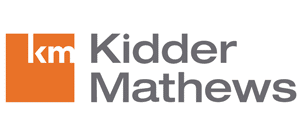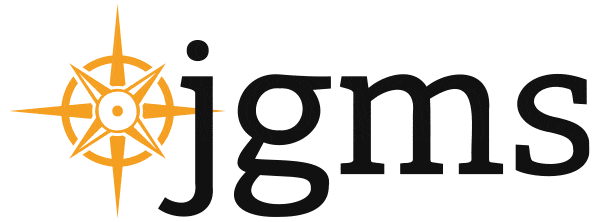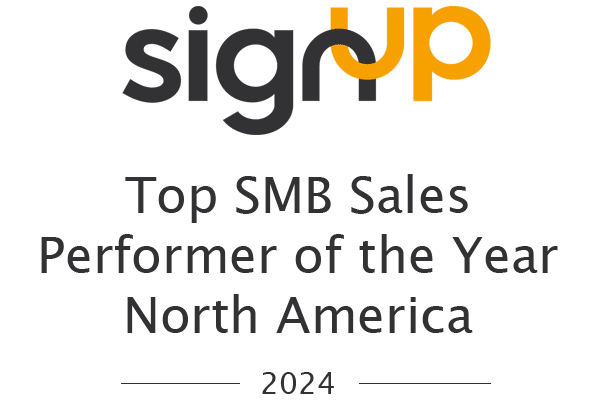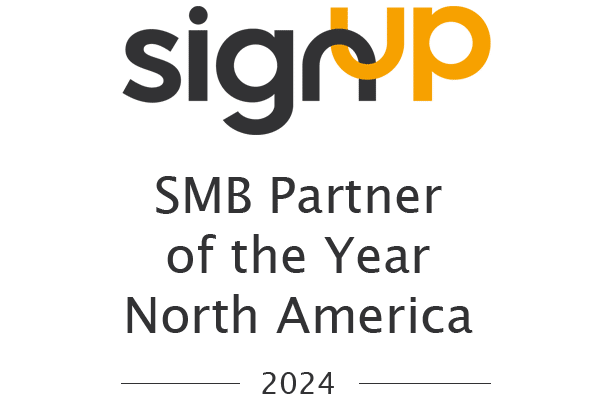Empowering Professional Services to Do More with Less
Are you feeling overwhelmed with managing your professional services firm? You’re not alone. Many firms face similar challenges, like tight budgets, demanding clients, and difficulties integrating data across different systems.
At Velosio, we understand the unique challenges faced by professional services firms. We go beyond one-size-fits-all solutions by aligning technology with your specific business model and requirements. Our experts become partners in your success, focusing on what works best for you, not the other way around. This commitment to adaptable technology empowers you to overcome your unique challenges efficiently, even with limited resources.
Begin Your Success Journey Now
Navigating Challenges in Professional Services with Expertise and Innovation
Velosio has over 30 years of experience helping professional services firms overcome industry-specific challenges by emphasizing efficiency and innovation across several critical areas:

Managing Tight Margins
Integrated systems can streamline operations and increase profit for firms with tight margins by optimizing resource utilization and preventing cost overruns with tools for time tracking, resource allocation, and project management.

Meeting Increasing Client Demands
Enhanced transparency is crucial in today’s client-centric environment. Solutions offering visibility into project progress, time entries, and costs build trust and confidence, improving client satisfaction and loyalty.

Talent Acquisition and Retention
In response to the challenge of finding and retaining a workforce, we provide technologies and strategies that streamline the recruitment, training, and deployment of talent, ensuring efficiency and effectiveness in workforce management.

Enhancing Business Insights
Leveraging data analytics and real-time dashboards enables companies to foresee risks, pinpoint success drivers, and refine client interactions. These technology solutions empower employees with insights for informed decision-making and improved project results.
Our Professional Services

Advisory Services
As your business grows and changes, our industry experts are here to navigate you through the world of technology solutions. We remain unbiased in our recommendations, ensuring that even if we don’t offer the perfect fit ourselves, you’ll receive the best solution for your company’s unique needs. Our success hinges on your success, so finding the optimal solution is always our top priority.

Digital Transformation
Our digital transformation experts become your trusted partner, navigating the tech landscape and finding the perfect solution for your business, whether cloud, on-premises, or hybrid. We prioritize your success by managing the entire process, minimizing disruption and risk, to unlock your potential and thrive in the digital age.

Strategy and Transformation
We are committed to guiding your business through its evolution, helping you adeptly navigate market changes and complexities. Our strategy and transformation services focus on developing innovative strategies and transforming challenges into opportunities for growth and long-term success.
Technology Solutions Built for Your Most Critical Challenges
Enterprise Resources Planning (ERP)
Unify your entire business. Simplify your business management by integrating finance, inventory, and customer data into one system, facilitating smoother operations and informed decision-making. This single source of truth enhances operational efficiency, drives smarter business strategies, and improves client satisfaction, allowing small to medium-sized businesses to thrive in competitive markets with streamlined processes and a unified approach to management. Imagine having a single source of truth for everything!
Solution: Microsoft Dynamics 365 Business Central
Key Insight: Users see up to a 30% reduction in operational costs, owing to its seamless integration and real-time financial insights.
Discover Microsoft Dynamics 365 Business Central
Project-Accounting Software
Streamline your project management with specialized software designed to track budgets, expenses, and revenue in real-time, ensuring financial precision and efficiency. This solution provides detailed financial reports and deep insights into each project’s profitability, allowing for better financial planning and decision-making. Experience enhanced control over your project finances, from initial budgeting to final revenue analysis, and discover opportunities for cost savings and increased profitability.
Solution: Progressus
Key Insight: The combination of the Progressus project wizard and project/task templates reduces task completion time from 30 minutes to just 5.
Discover Progressus
Customer Relationship Management (CRM)
Accelerate your sales and foster lasting client relationships with a CRM system that leverages advanced analytics for deep insights into customer behaviors, preferences, and needs. This strategic solution empowers your business to customize interactions and communication, ensuring a personalized customer experience that drives loyalty and sales. Benefit from streamlined processes that simplify lead tracking and management while offering a comprehensive view of your customer lifecycle.
Solution: Microsoft Dynamics 365 Sales
Key Insights: Firms using Microsoft Dynamics 365 Sales have experienced a 15% increase in sales productivity, driven by streamlined processes and predictive insights.
Discover Microsoft Dynamics 365 Sales
Enterprise Resources Planning (ERP)
ERP systems provide enterprise companies with a unified platform to optimize operations, streamline financials, and enhance profitability. By integrating key business functions, ERP offers real-time insights and efficiency across all departments, supporting informed decision-making and facilitating growth. This comprehensive solution drives cost reductions and operational excellence, enabling enterprises to maintain a competitive edge in their industries.
Solution: Microsoft Dynamics 365 Finance
Key Insight: Users note a 20% reduction in operational expenses thanks to automated financial tasks and detailed reporting.
Explore Microsoft Dynamics 365 Finance
Advanced Project Accounting
Unify your projects from start to finish. Effectively allocate and optimize your resources, ensuring every project is delivered efficiently and exceeds client expectations. Engage your clients throughout the project lifecycle with transparent communication and collaboration tools, strengthening relationships and ensuring satisfaction. Empower your team with a solution that integrates seamlessly into your workflows, promoting productivity and fostering an environment of excellence in project delivery.
Solution: Microsoft Dynamics 365 Project Operations
Key Insight: This solution improves project profitability by 20% due to enhanced resource utilization and efficient project tracking.
Explore Microsoft Dynamics 365 Project Operations
Supply Chain Management
Optimize your supply chain for efficiency and improve inventory management to keep your business running smoothly. By leveraging advanced analytics, artificial intelligence, and real-time visibility, you can anticipate market changes, adapt swiftly to demand fluctuations, and ensure timely order fulfillment. Embrace a future where your supply chain is not just a link in your business operations but a strategic asset that propels you ahead in a competitive marketplace
Solution: Microsoft Dynamics 365 Supply Chain Management
Key Insight: This solution leads to a 15% increase in supply chain efficiency, attributed to real-time tracking and predictive analytics.
Explore Microsoft Dynamics 365 Supply Chain Management
Productivity Apps
Empower everyone in your business to solve problems and create innovative solutions with a unified platform that allows you to visualize insights, automate workflows, and develop custom applications—all with minimal coding required. This suite of intuitive tools fosters innovation and collaboration, transforming how you leverage your data to make strategic decisions and optimize efficiency.
Solution: Microsoft Power Platform
Key Insight: Medium-sized projects increased user efficiency from 3% to 5% in three years, resulting in significant time savings and productivity gains.
Discover Microsoft Power Platform
Data Analytics Solution
Simplify your data journey and unlock actionable insights with a unified analytics platform. Consolidate data from various sources, gain a holistic view, and harness the power of AI for real-time analysis. This all-in-one solution empowers everyone, from business analysts to data scientists, to extract value from your data and make data-driven decisions.
Solution: Microsoft Fabric
Key Insight: Microsoft Fabric simplifies data integration and management, allowing users to access and analyze data quicker, leading to faster decision-making.
Discover Microsoft Fabric
Generative AI Solution
Simplify complex tasks and get more done with an AI assistant that integrates directly with your workflow. This helpful tool offers real-time suggestions for coding, writing, and even translations. Get code completion, draft generation, and helpful prompts to accelerate your work and free up mental space for creative problem-solving.
Solution: Microsoft Copilot
Key Insight: 68% of users report an improvement in the quality of their work after using Copilot.
Discover Microsoft Copilot
How We are Helping other Professional Services Firms
Leaders in Professional Services Benefit from Our Expertise

Consultants
Facing a dynamic business environment requires agility and efficiency. Velosio helps consultants find the right technology, redefine processes to streamline operations and enhance their ability to adapt and succeed.
Learn More
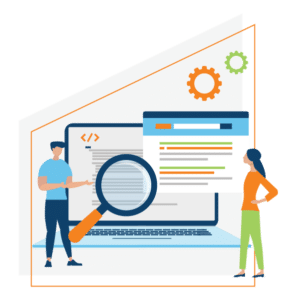
Software Publishers
In a rapidly evolving industry, software publishers face the challenge of keeping up with innovation and speed. Velosio helps you redefine processes and select the right technology to accelerate development and market responsiveness.
Learn More
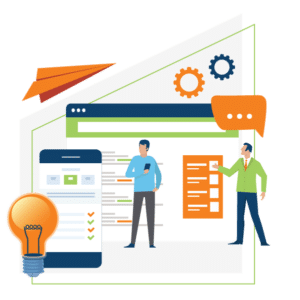
Technology Services
Technology services providers must navigate the complexities of delivering high-value projects profitably. Velosio aids in leveraging cloud-based solutions to increase project profitability and client satisfaction.
Learn More

Architects & Engineers
With a surge in infrastructure spending, A&E professionals seek to capitalize on growing demand. Velosio offers resources to streamline operations and technology, positioning them advantageously for upcoming opportunities.
Learn More
Meet Our Leadership Experts
James Thomas
Director Project Businesses
Carrie Gabris
Practice Director, Microsoft Dynamics 365 Business Central
Sreepathy Nagarajan
Practice Director, Microsoft Dynamics 365 Finance & Supply Chain Management
Jason Wietharn
Practice Director, Microsoft Dynamics 365 Sales
Dynamics 365 Business CentralDynamics 365 ERP
![]()
![]()
![]()
![]()









